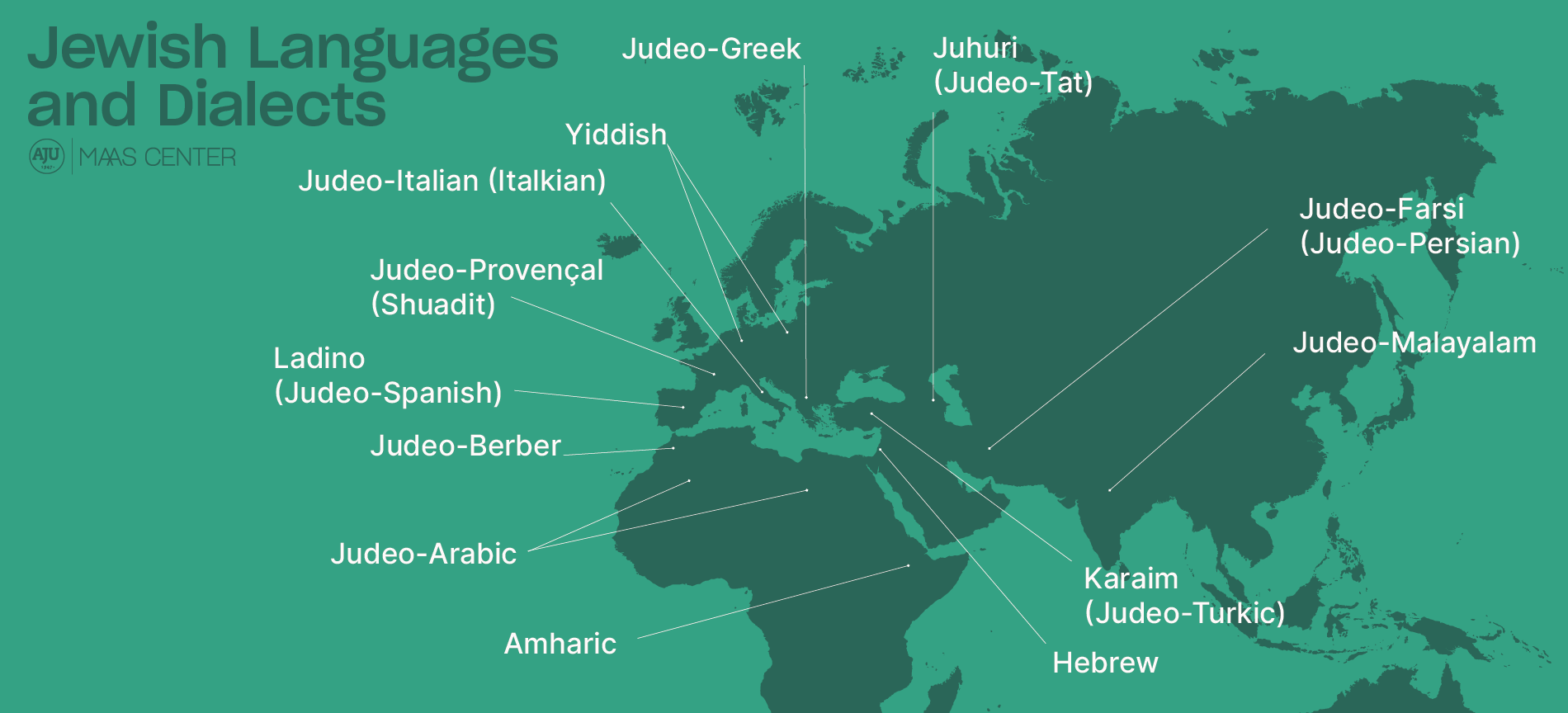Celebrating Jewish Culture: The Basics
Learn about the good stuff.
There are many things to celebrate about being Jewish or Jew-adjacent.
Jews have made incredible contributions to science, entertainment, and the arts. Explore rich traditions like Shabbat (our Sabbath), the diversity of Jewish cuisine, and the concepts of resilience and tikkun olam (the act of helping to repair the world). There’s so much to celebrate, from holidays and humor to meaningful values and a legacy of perseverance.
Read on to discover the vibrant culture, history, and traditions that make Judaism unique.
The best of Jewish life, from community to comfort foods.
Each element of Jewish life and culture reflects a unique facet of identity, offering opportunities for connection, growth, and fulfillment. From shared traditions and values to vibrant celebrations and delicious foods, these experiences foster relationships that nurture both community and self-discovery.
Rich History and Culture
Judaism boasts a history of thousands of years, filled with fascinating stories, traditions, and cultural practices connecting generations.
Strong Sense of Community
There are Jewish communities all over the world, and they operate as extended families, fostering a deep sense of belonging, support, and shared identity. They offer a network of connections wherever you go, making you feel like you’re never alone.
Delicious Food
Because Jews live all over the world, Jewish cuisine is diverse and flavorful, featuring staples like challah (special braided bread), latkes (potato pancakes), Jachnun (Yemenite), gondi (Persian) and kugel (a noodle pudding). Many of these treats can be found at your local Trader Joe’s.
Unique Holidays and Celebrations
A full calendar of Jewish holidays offers opportunities to gather with family, friends, and community for celebrations like Hanukkah, Passover, Purim, and the weekly celebration of Shabbat. Each holiday is filled with its own history and meaning.
Intellectual Tradition
Judaism is a beacon of intellectual curiosity, highly valuing learning and questioning. This tradition has contributed significantly to fields like science, philosophy, and the arts. Did you know that 216 Jewish Nobel Laureates account for 22% of all Nobel Prize winners?
Cultural Contributions
Jewish art, music, literature, film, and comedy have shaped global culture. Jewish creativity knows no bounds, from contributing to the foundation of Hollywood (Warner Brothers, MGM, Universal Studios) to producing icons like Steven Spielberg, Billy Wilder, Scarlett Johansson, and Adam Sandler.
Social Justice and Tikkun Olam
The concept of tikkun olam (repairing the world) is a central tenet of Judaism that inspires Jews to work toward social justice, environmental sustainability, and community improvement. It is the belief that each individual is responsible for making the world a better place, and this principle guides many Jewish social and charitable initiatives. The idea is to work together to fix the brokenness and leave the world better than we found it.
Resilience and History
The Jewish story is one of survival and resilience, spanning over 3,000 years. This rich history provides a profound pride and connection to an enduring heritage.
Universal Values
Jewish values can offer us a sense of meaning and purpose. Core Jewish values such as chesed (kindness), tzedakah (charity), and shalom (peace) resonate universally, encouraging individuals to live ethically and compassionately. Chesed promotes acts of kindness and generosity; tzedakah requires us to share resources with those in need, and shalom fosters peaceful coexistence and harmony among all people.

Jewish Languages and Dialects
The languages of Jewish communities (Judeo) reflect the journeys, adaptations, and creativity of a people dispersed across the world. Each language is a blend of Hebrew, the sacred tongue, with the dominant languages of the regions where Jewish communities lived, creating unique dialects and cultural expressions.
The map above depicts where the many Jewish languages and dialects originated from. Today, as Jews move around the world, they have taken their respective languages along with them. For example, while Yiddish originated from Eastern Europe, today you may hear it spoken in Canada, U.S.A., South Africa, Israel and all of the countries that Ashkenazi Jews have resettled in.
Yiddish – Primarily spoken by Ashkenazi Jews from Eastern Europe, where this language was originated. A blend of Hebrew, German, and Slavic languages with some additional influences.
Ladino (Judeo-Spanish) – Spoken by Sephardic Jews originating from Spain, later dispersed to places like the Ottoman Empire, North Africa, and the Balkans. A mix of Old Spanish, Hebrew, and regional influences.
Hebrew – A biblical language revived as a modern spoken language and now the official language of Israel. Central to Jewish religious texts and liturgy.
Amharic – The language of Ethiopia, spoken by Beta Israel (Ethiopian Jews). Many Ethiopian Jews also speak Tigrinya or Hebrew after immigrating to Israel.
Judeo-Farsi (Judeo-Persian) – Spoken by Persian Jews, this language incorporates Hebrew and Aramaic elements into Farsi.
Judeo-Arabic – Spoken by Jews in Arab lands, combining Arabic with Hebrew and Aramaic influences, often written in Hebrew script.
Judeo-Italian (Italkian) – Spoken by Jewish communities in Italy, blending Italian with Hebrew and Aramaic influences.
Judeo-Greek – Used by Romaniote Jews, primarily in Greece, combining Greek with Hebrew and Aramaic elements.
Judeo-Provençal (Shuadit) – Once spoken by Jewish communities in southern France, this language combined Hebrew with Provençal (a dialect of Occitan).
Judeo-Berber – Spoken by Jewish communities in Morocco and Algeria, combining Berber languages with Hebrew and Aramaic influences.
Karaim (Judeo-Turkic) – Spoken by the Karaite Jewish community in Crimea, Lithuania, and Turkey, blending Turkic languages with Hebrew influences.
Juhuri (Judeo-Tat) – Spoken by Mountain Jews of the Caucasus region, blending Tat (a Persian-based language) with Hebrew and Aramaic.
Judeo-Malayalam – Used by the Jewish community in Kerala, India, combining Malayalam with Hebrew and Aramaic elements.
“The Jewish people have survived because of hope, faith, and laughter.”
-Elie Wiesel, Romanian-born American writer, professor, political activist, Nobel laureate, and Holocaust survivor
Goldberg and Schwartz are walking down the road when they encounter a man.
“Where are you going?” the man asks.
“We’re headed to the synagogue,” they both reply.
“I understand why Goldberg goes to synagogue,” the man says. “Goldberg believes in God. But Schwartz, you don’t believe in God—why are you going?”
Schwartz smiles and responds, “Goldberg goes to synagogue to talk to God, and I go to synagogue to talk to Goldberg.”
Judaism is deeply personal. You don’t need to believe in God, go to temple, or eat kosher to be Jewish. There are countless ways to connect, belong, and find meaning within Judaism’s rich diversity.

